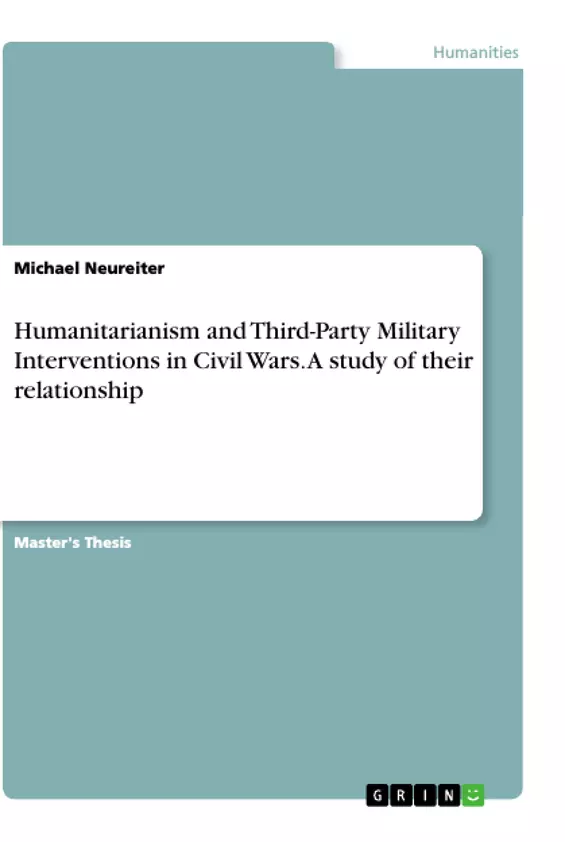This study aims at examining the reasons why foreign countries (or third parties) militarily intervene in civil conflicts.
To better illustrate its argument, I begin with a brief discussion of two contrasting examples: the Sierra Leone Civil War (1991-2002) and the Casamance Conflict in Senegal (1982-2014). Sierra Leone and Senegal are very similar on a number of dimensions. Both countries are located in West Africa, possess ample natural resources including diamonds and gold (but no oil), and are former colonies of Western powers. In addition, both Sierra Leone and Senegal have small economies without significant ties to the West, are militarily weak, and have little geopolitical importance.
Therefore, if we only focus on such material factors, as Realists often do, it seems somewhat puzzling that the civil war in Sierra Leone triggered a military intervention by its former colonizer, Great Britain, whereas the one in Senegal did not.
If we extend our focus beyond material factors, one can see that the Sierra Leone Civil War differed from the Casamance Conflict in one important respect, which might help explain the difference in intervention outcomes: the level of violence against civilians.
While all intrastate wars are tragic and involve substantial human suffering, there is substantial variation in the extent and nature of the atrocities committed by the warring parties. Some civil conflicts experience widespread and even systematic violence against civilians such as rape, torture, and targeted killings, whereas in others this kind of violence is relatively rare.
The Sierra Leone Civil War is an example of the former type of conflict. More than 50,000 people died as a result of the war, the majority of them civilians. The years between 1997 and 2000 were marked by systematic atrocities committed against the civilian population, to the extent that some observers called it genocidal violence. In contrast, the Casamance Conflict was an intense but rather localized civil war. Fighting was largely restricted to the southern part of Senegal, and both warring parties showed relatively great restraint in their targeting of civilians.
Inhaltsverzeichnis (Table of Contents)
- Abstract
- Aim and Scope
- The Existing Literature
- An Expected Utility Theory of Third-Party Intervention
- Research Design
- Results
- Conclusion
Zielsetzung und Themenschwerpunkte (Objectives and Key Themes)
This study aims to understand why foreign countries intervene militarily in civil conflicts. It examines the role of humanitarianism, focusing on the conditions under which it influences intervention decisions.
- The influence of humanitarian motives on third-party intervention decisions
- The impact of state power, democracy, and international system dynamics on intervention decisions
- The analysis of civil wars and their characteristics
- The development of an expected utility theory of intervention
- The empirical testing of the theoretical propositions
Zusammenfassung der Kapitel (Chapter Summaries)
- Abstract: This study examines the factors that influence third-party intervention in civil wars, focusing on the role of humanitarianism. It argues that humanitarian motives are more likely to drive intervention when the third party is not a major power, is a democracy, and operates in a non-bipolar international system.
- Aim and Scope: The study begins with contrasting examples of the Sierra Leone Civil War and the Casamance Conflict, highlighting the importance of factors beyond material interests. It introduces the concept of humanitarianism and its role in intervention decisions.
- The Existing Literature: This section reviews previous research on the relationship between humanitarianism and intervention, highlighting the debate on whether humanitarian interventions are genuine or merely a façade for strategic interests.
- An Expected Utility Theory of Third-Party Intervention: This chapter develops a theoretical framework for understanding intervention decisions, emphasizing the role of expected utility and distinct preferences. It argues that humanitarianism is a significant preference for certain third parties, influenced by factors such as state power and political system.
- Research Design: This section details the methodology of the study, including the use of dyadic data, rare events logistic regression, and the UCDP/PRIO Armed Conflict Dataset.
Schlüsselwörter (Keywords)
The key themes and concepts explored in this study include humanitarianism, imperialism, human rights, intervention, civil war, conflict, violence, and the expected utility framework. The study delves into the factors that influence third-party intervention decisions, such as state power, political systems, and international system dynamics. It also focuses on analyzing civil wars and their characteristics, with specific attention to violence against civilians.
Frequently Asked Questions about Humanitarian Military Interventions
Why do third parties intervene in civil wars?
Intervention decisions are driven by a mix of material interests (Realism) and humanitarian motives, especially when systematic atrocities against civilians occur.
How does violence against civilians influence intervention?
High levels of systematic violence, such as rape and targeted killings (as seen in Sierra Leone), are significant triggers for foreign military intervention compared to localized conflicts with restraint.
Why did Britain intervene in Sierra Leone but not in Senegal?
Despite similar material factors, the Sierra Leone Civil War involved genocidal violence against civilians, whereas the Casamance conflict in Senegal was localized and showed relative restraint.
What is the "Expected Utility Theory" of intervention?
It is a theoretical framework suggesting that states weigh the costs and benefits of intervening based on their preferences, which include both strategic gains and humanitarian values.
Are humanitarian interventions often just a façade?
The study reviews literature on this debate, examining whether motives are genuine or used to hide imperialist or strategic interests of major powers.
- Quote paper
- Michael Neureiter (Author), 2015, Humanitarianism and Third-Party Military Interventions in Civil Wars. A study of their relationship, Munich, GRIN Verlag, https://www.hausarbeiten.de/document/962227


